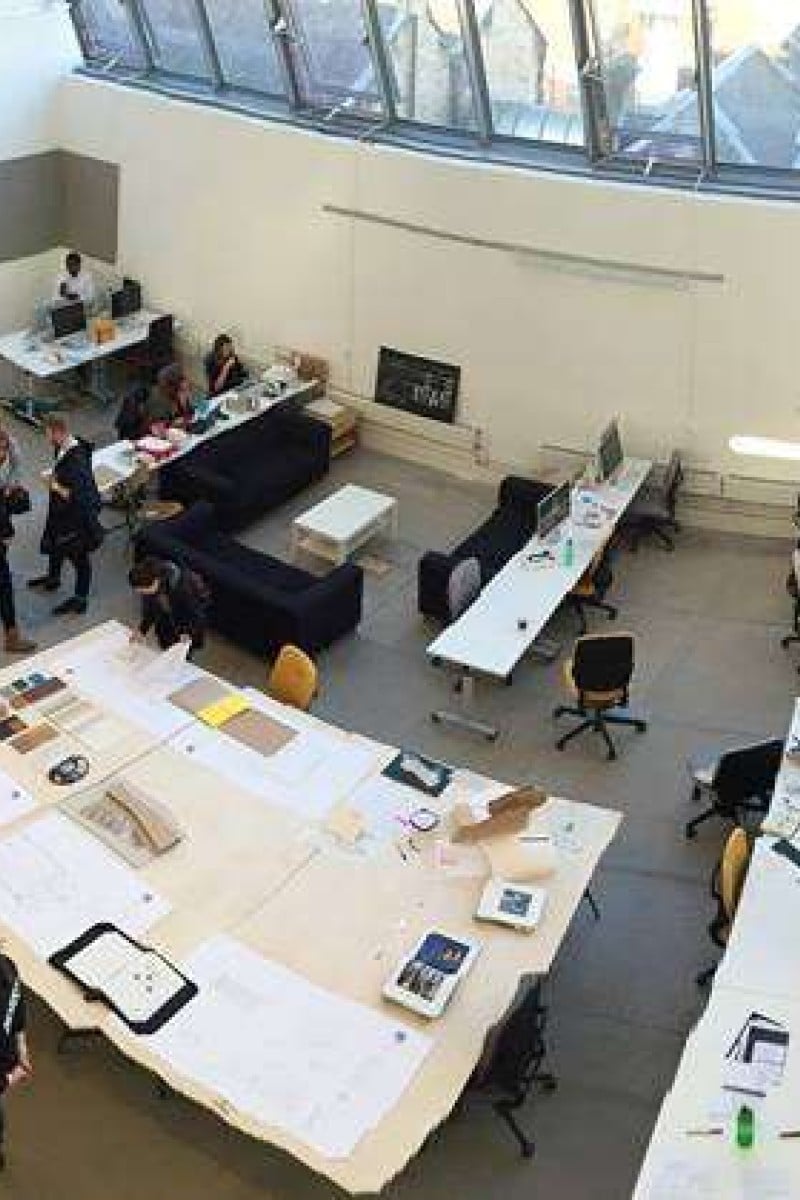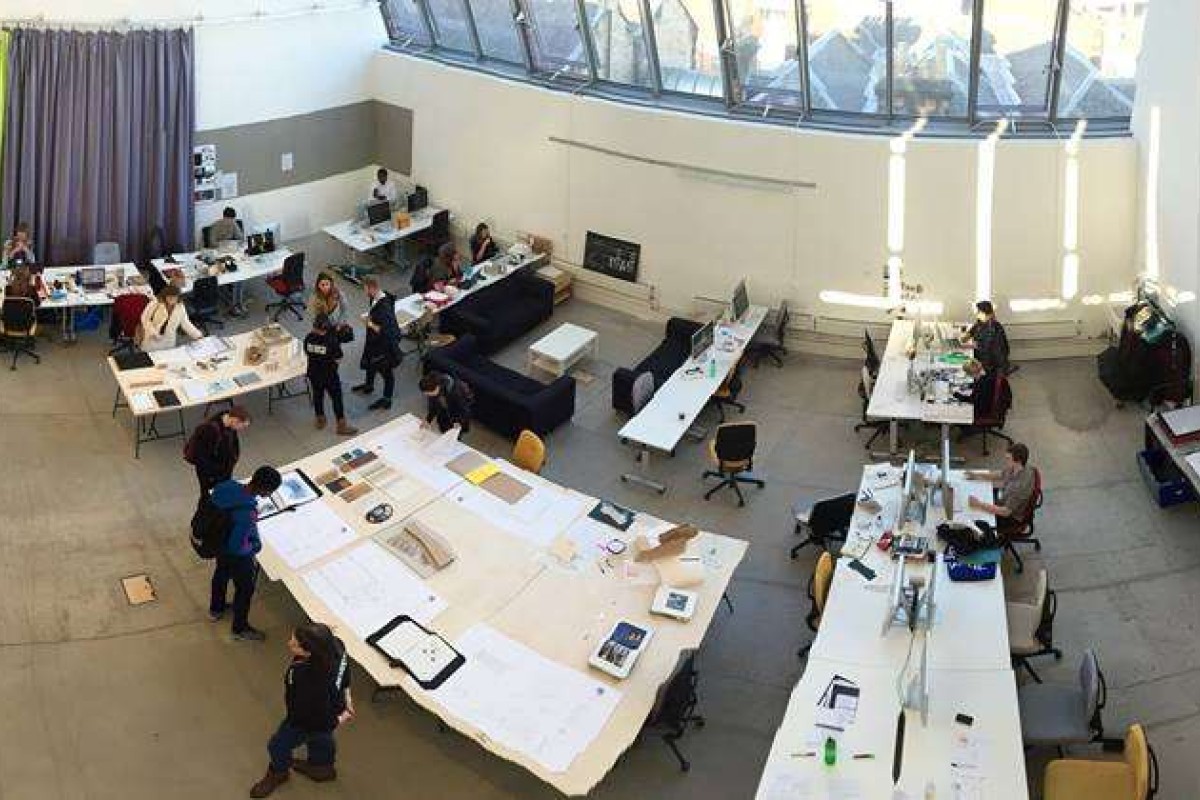
Hong Kong students find their calling studying at Glasgow School of Art in Scotland
Art is not a typical career choice in Hong Kong, but Lucy Christie talked to two students who decided to follow that dream ... in Scotland
 With students from around the world, Glasgow School of Art offers students the space and the teaching to develop their own personal vision.
With students from around the world, Glasgow School of Art offers students the space and the teaching to develop their own personal vision.Rachel Wong considers herself to be an ordinary Hong Kong student. She didn’t get any 5**s in her DSEs, and she didn’t win student of the year. But that doesn’t mean she hasn’t been able to do great things, including studying abroad at the prestigious Glasgow School of Art (GSA), in Glasgow, Scotland.
So how did she do it? Young Post went to Glasgow last month to find out. Wong, now 20, studied at CNEC Christian College, Kwai Chung. Although her grades were good, they weren’t the outstanding ones you might expect you need to study overseas. On her DSEs, she got 5 for English, 5 for Chinese, 4 for Maths, 5 for Visual Arts, 4 for Liberal Studies, and 4 for Economy.
The requirements for her course – interior design – included achieving DSE level 4 or above in four subjects (without specifying what those subjects needed to be), getting a score of 6.5 on IELTS, doing a phone interview and submitting a digital portfolio of her work. It sounds like a lot, but that’s where the gruelling Hong Kong education system came in handy.
Wong was able to use her DSE visual arts coursework for the bulk of her portfolio, adding to it with her own work. For design students, the portfolio is expected to contain around 15 pieces, five finished works and five “works in progress”. Dr Vanessa Johnson, Head of Student Recruitment and International Office at GSA, highlights that this is one of the areas where Hong Kong students fall short.
“Seeing how a student thinks about and develops ideas is critical to understanding if a student will fit,” says Johnson.
The main element they are looking for is process, and to demonstrate this, unfinished work is key. Johnson notes that Hong Kong students can have a hard time understanding why a university application wants them to submit a half-finished piece of work. However, as she explains, it’s all about seeing what a candidate would do with raw materials.
“Chinese candidates usually have very strong drawing skills. But they lack conceptual skills. For example, if you gave a Chinese student a piece of paper and asked them to make something, they wouldn’t know what to do with it. European students, on the other hand, would turn it into something,” says Johnson. “So it’s important for us to be able to see a student’s thought process, not just the finished product.”
If you want to see if you have what it takes, Johnson recommends starting with the website. It’s a good place to see samples of successful work, but she reminds candidates that while portfolios have a lot of weighting, the written statement plays a big part in the application process, too.
Wong also applied to University of the Arts London, Birmingham University, and Goldsmith Art College in London, but she believed the GSA, which is ranked 20th in the world for Art and Design according to topuniversities.com, had a better reputation and ranking for her course. On top of that, GSA has produced five winners of the Turner Prize – a prestigious award for young British artists – and 30 per cent of nominees since 2006.
So Wong took the plunge and accepted the offer, and says it was the best decision she could have made. And actually, choosing an institution that is lesser known among Hong Kong students has been one of the biggest perks.
“There aren’t many Hong Kong students here, so it forces you to speak to international students,” says Wong. “I came here to learn things I can’t learn in Hong Kong, so that’s been really important for me. I need to enjoy my time here but I can’t forget my responsibility and why I came here – to learn.”
While Rachel came straight to Glasgow after finishing her DSEs, a lot of students opt for a foundation course before heading to university.
“Foundation courses are all about learning skills and are quite general. They’re good if you aren’t sure what you want to specialise in,” explains Wong.
“I knew I wanted to do interior design, which is why I applied directly for GSA, but if you’re not sure what you want, just think about getting your DSEs,” she adds. “Relax. Just do your best.”
This sentiment is echoed by Venus Pang, another Hongkonger studying at GSA. who studied at SKH Tsang Shui Tim Secondary School. “Do your best but don’t stress yourself too much,” she says.
Pang, 21, first did a foundation course in Cambridge School of Visual and Performance Art. For her, the toughest part about coming to study in GSA was convincing her parents that a career in art can be financially rewarding and lead to long-term opportunities.
They were reluctant to let her go, until Pang, who also studies interior design, scooped a prestigious award last month, putting all their fears to rest. Pang submitted a concept for the new Topshop store in Los Angeles, US, and won placements with Topshop, and with leading design company Graven Images.
“My parents didn’t want me to do the course because it’s riskier than studying business or something, but since I won the award they are sure I made the right choice.”
So while it might seem safer to opt for a career in business or finance, if you’re really passionate about something, opportunities, and success, are out there, no matter what you want to specialise in.
“Studying interior design in Scotland is not exactly a normal path for a Hong Kong local student,” laughs Pang. “But I’ve loved every minute of it.”
This trip was kindly facilitated by the British Council.